24 Hours Hotline: +86 137-3541-1378
Email:shanghai@tripstoshanghai.com
24 Hours Hotline: +86 137-3541-1378
Email:shanghai@tripstoshanghai.com
Tour Style:
This adventure luxury tour China combines thrilling exploration with refined comfort across 16 days. Traverse iconic destinations—from Beijing’s Forbidden City and Mutianyu Great Wall to Harbin’s Ice and Snow World, Changbai Mountain’s Tianchi, and Shanghai’s Bund.Enjoy premium perks: private transfers, well-appointed hotels, and expert guides who share deep cultural insights—from explaining temple etiquette to decoding imperial history. Savor authentic flavors handpicked for each region, from Beijing’s Peking duck to Harbin’s Russian-Chinese fusion and Shanghai’s local specialties.Balance active adventures (hiking the Great Wall, chasing Jilin’s rime) with immersive cultural experiences (making kimchi in a Korean village, exploring Zhujiajiao Water Town). With flexible arrangements, crowd-avoidance timing, and personalized service, this tour lets you experience China’s diversity—heritage, nature, and urban glamour—in ultimate style.
Duration: 16 Days,15 Nights
Attractions(Cities):
Beijing, Harbin, Snow Village, Jingpo Lake, Dunhua, Erdaobaihe, Changbai, Jilin, Changchun, Shanghai, Zhujiajiao Water Town
Pick-up point:
Your hotel in Shanghai (based on your requirement)
Finishing point:
Your hotel in Shanghai (based on your requirement)
Tour Customizable:
Absolutely! (Tell us your requirements in your inquiry)
Payment Types:
Cash, Wire, Paypal, WesternUnion, Wechat, Alipay, PayPal
Available: Daily
Day 1 Beijing Arrival
Day 2 Beijing: Tiananmen Square, Forbidden City, Temple of Heaven, Qianmen Street
Day 3 Beijing: Mutianyu Great Wall, Bird's Nest & Water Cube(From Outside)
Day 4 Harbin: Take train from Beijing to Harbin, Transfer with driver only
Day 5 Harbin: Volga Manor, Ice and Snow World, Sun island, Stay overnight in Harbin
Day 6 Harbin to Snow Village: Travel to Snow Village, passing through Yabuli, Stay overnight in Snow Village
Day 7 Snow Village
Day 8 Snow Village-Jingpo Lake:Jingpo Lake, ruins of the ancient city of Bohai, boat tour, Diaoshuilou Waterfall, Stay overnight in Dunhua
Day 9 Dunhua-Erdaobaihe:Erdaobaihe, Zhengjue Temple, Korean Folk Village, Stay overnight in Erdaobaihe
Day 10 Drive to Changbai: Changbai Mountain North Scenic Area, transfer to Jilin
Day 11 Jilin: Wusong Island in Jilin, Songjiang Road, Central Street, Stalin Park, Sophia Church Square, Overnight in Jilin
Day 12 Drive to Changchun: Puppet Emperor’s Palace, the Eight Ministries of Manchukuo
Day 13 Changchun-Shanghai: Zheyoushan Shopping Mall, Fly to Shanghai
Day 14 Shanghai: Yuyuan Garden, Shanghai Bazaar, Old French Concession, The Bund, Nanjing Road
Day 15 Shanghai-Zhujiajiao Water Town:winding alleys, boat ride, Fangsheng Bridge, Kezhi Garden, Zhujiajiao Museum, local shops
Day 16 Shanghai Departure
Embark on your exclusive, meticulously curated trip with Your Way Holiday. Our expert guides will warmly greet you at the airport arrivals hall, holding a standard "Your Way Holiday" sign. After unloading your luggage from the carousel, your guide will assist with your luggage and provide a detailed overview of your itinerary—covering iconic landmarks and off-the-beaten-path attractions—as well as a thorough explanation of transportation schedules and hotel check-in procedures. They'll also share practical tips, such as local customs to observe, the best time to visit popular attractions to avoid crowds, and common Mandarin expressions.
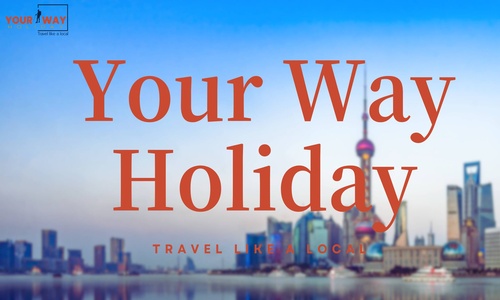
Afterwards, depending on the size of your group, we'll arrange a luxury private car, limousine, or spacious van, complete with complimentary bottled water, fresh towels, and Wi-Fi. As you navigate Beijing's vibrant streets, your knowledgeable and witty guide will weave fascinating stories of the city's transformation. With the Beijing skyline as a backdrop, they vividly depict the evolution of Beijing, an ancient capital of five dynasties—from the Yuan Dynasty's Dadu, with its meticulously planned gridded streets and magnificent palaces, to the Forbidden City of the Ming and Qing dynasties, a symbol of imperial power and magnificent architecture—to its present-day transformation into a modern, cosmopolitan city. Your guide will highlight the ancient city walls, still a silent testament to history, and skyscrapers like the China Zun, Beijing's tallest building, showcasing the city's glorious past against its vibrant modern landscape.
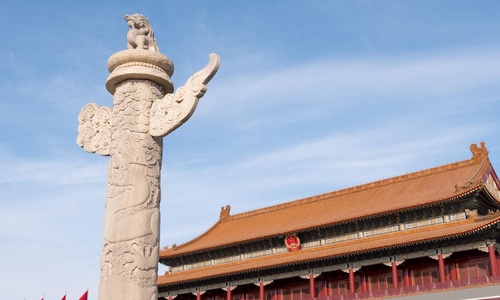
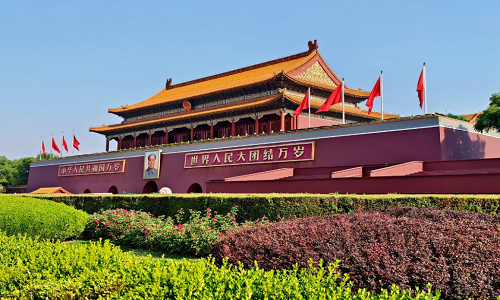
If you have time before your stay, your guide will recommend nearby lesser-known attractions tailored to your interests and preferences. For culture lovers, explore traditional teahouses tucked away in narrow alleyways, where you can sip fragrant teas like Longjing and Pu'er while listening to the soothing melodies of traditional Chinese instruments. For food lovers, your guide may recommend a local breakfast spot renowned for its delicious steamed buns or crispy pancakes. These recommendations are designed to create a unique and immersive experience, allowing you to experience the true essence of Beijing before your official journey begins.
Begin your authentic Beijing experience with a traditional Beijing breakfast. Savor the unique flavor of douzhi (fermented mung bean juice) paired with crispy youtiao (deep-fried dough sticks), a classic combination beloved by locals for generations. Your guide will greet you in the hotel lobby at your designated time and embark on a day of enriching cultural exploration.
First stop: Tiananmen Square. This iconic 440,000-square-meter square is more than just a public space; it stands as a testament to China's modern history. Your guide will explore the Monument to the People's Heroes, explaining its 10 reliefs depicting key events from the Opium Wars to the founding of the People's Republic of China and sharing the symbolism behind its 37.94-meter height (representing 1949). They will also provide background on the Mao Zedong Memorial Hall and the Great Hall of the People, emphasizing their roles in shaping national identity. Adjacent to the square lies the Forbidden City, a UNESCO World Heritage site and the imperial residence of 24 emperors during the Ming and Qing dynasties. As you pass through the Meridian Gate, your guide will explain the Forbidden City's architectural hierarchy: the Outer Court (for state affairs) and the Inner Court (for imperial life). Inside the Hall of Supreme Harmony, your guide will detail the "Dragon Throne" and its 72 golden pillars, explaining how the building's design—from its double-eaved hip roof to its marble moat—reflected the emperor's status as the "Son of Heaven." They'll also share interesting anecdotes about imperial life, such as how the emperor avoided walking along the central axis (reserved for deities) and the role of eunuchs in court affairs.
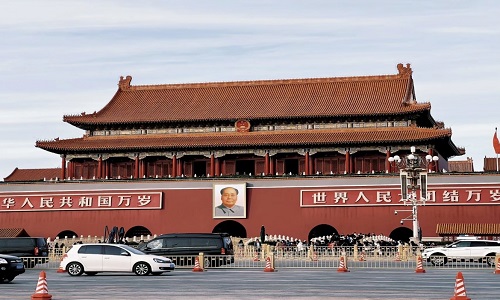
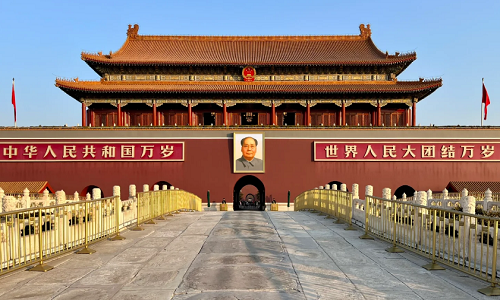
After touring the Forbidden City, your guide will take you to a local restaurant where you'll savor iconic Beijing specialties:
Peking Roast Duck: Roasted to a crisp, tender texture, served with pancakes, chopped green onions, and sweet bean sauce—this imperial dish dates back to the Yuan Dynasty.
Zhajiangmian: Noodles made with fermented bean paste, ground pork, and fresh vegetables are a classic example of Beijing's grassroots cuisine.
Sour and Spicy Shredded Potatoes: A refreshing and flavorful side dish that balances the heartiness of the dish.
Your guide will discuss how these dishes have evolved throughout Beijing's history, from imperial banquets to street food stalls.
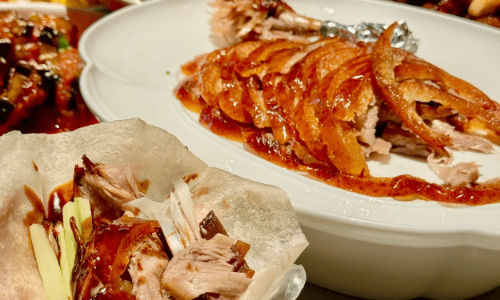
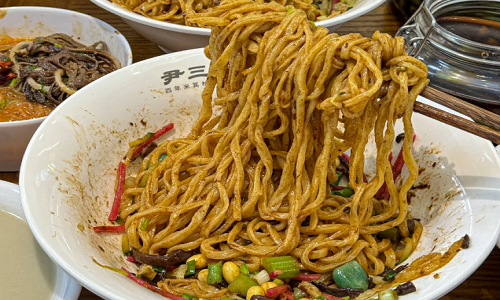
Next, visit the Temple of Heaven, a masterpiece of ancient Chinese cosmology. Unlike the Imperial Palace (painted yellow for the emperor), the Temple of Heaven's roof is blue as a sign of reverence. Your guide will explain the Temple's layout: the Circular Mound Altar (where the emperor offered sacrifices to heaven during the winter solstice) and the Hall of Prayer for Good Harvests (used to pray for a good harvest). Your guide will highlight the altar's "Heavenly Heart Stone"—which whispers due to acoustic design—and the 28 wooden pillars in the Hall of Prayer for Good Harvests, representing the twenty-eight lunar constellations. Your guide will also connect the Temple of Heaven's rituals to ancient Chinese agrarian society, where the emperor's prayers were believed to bring prosperity to the country.
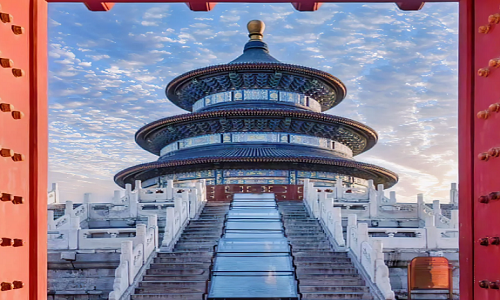
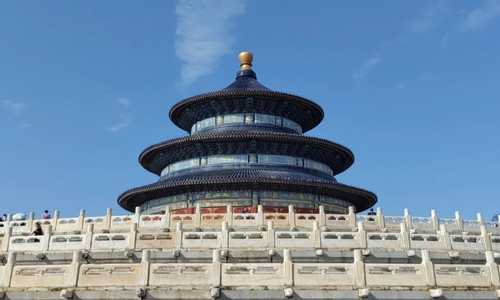
End the day at Qianmen Street, a 600-year-old street that once served as the main gate to the imperial city. Your guide will guide you past historic shops such as the Nei Lian Shengchao Shoe Factory, founded in 1853, and the silk merchant Ruifuxiang, established in 1862, explaining how these businesses have endured through dynasties and modernization. Your guide will also recommend must-try snacks: pork offal pancakes from a family-run food stall and "green da gun" (red bean glutinous rice rolls) from a shop that preserves traditional techniques. As you stroll down the street, your guide will explain the street's 20th-century renovations, which struck a balance between historical heritage preservation and modern commerce.
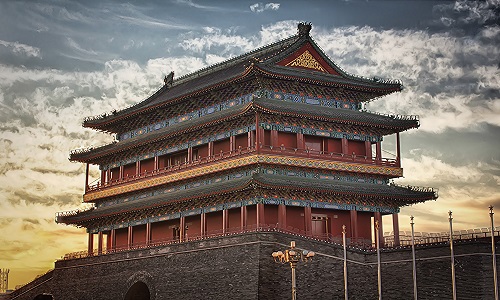
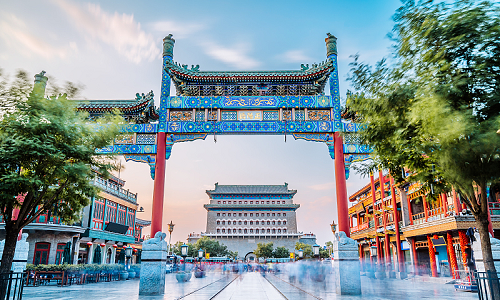
Today, your guide will accompany you to Mutianyu, the best-preserved section of the Ming Dynasty Great Wall. Along the way, your guide will trace the history of the Great Wall: its initial construction for unified defense during the Warring States Period (475-221 BC) and its major expansion during the Ming Dynasty to defend against Mongol invasions. Upon arrival, your guide will assess your fitness level and recommend either a cable car ride (saving energy for hiking) or a moderate climb. They will also share practical tips for navigating the steep wall and making the most of the photo opportunities from the watchtowers.During the hike, your guide will explain the wall's key architectural details: archer crenels, observation holes, and arrow slits. They will also explain how the Great Wall functioned as an integrated military system, with beacon towers transmitting messages over long distances using smoke signals during the day and fire signals at night. They will also highlight the unique charm of Mutianyu: its 23 densely packed watchtowers, surrounded by verdant pines and cypresses, making it one of the most beautiful sections of the Great Wall. From the highest observation tower, your guide will recount the poignant folk tale of Meng Jiangnu: Legend has it that she was so grief-stricken by her husband, a laborer who died building the Great Wall, that her tears collapsed a section of the wall—a testament to the human cost of this architectural marvel.
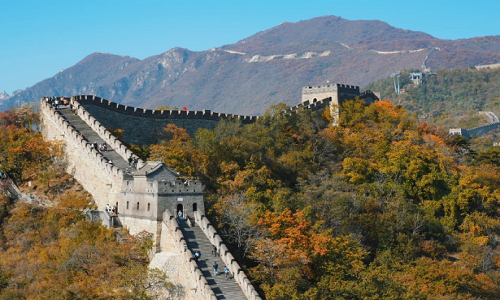
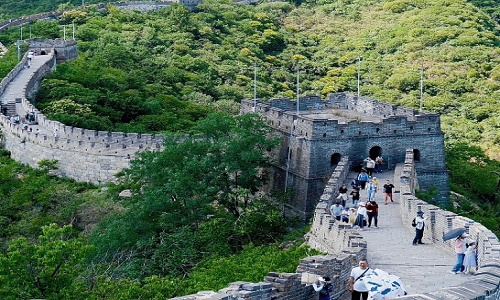
After descending the Great Wall, your guide will take you to a local restaurant near the scenic area, where you can savor traditional Beijing rural cuisine. Dishes like tender chestnut-braised chicken (a seasonal delicacy perfectly blending savory and sweet chestnuts), fresh vegetables picked from nearby fields like chrysanthemum cauliflower and bok choy, and handmade bean flour pancakes—soft and sweet, perfectly absorbing the flavors of each dish—are all examples of Beijing rural specialties. Enjoy as many of them as you like, immersing yourself in Beijing's delicious cuisine and recharging your batteries for the rest of your journey. Your guide will explain how these dishes have been passed down through local families, reflecting the simple, nutritious eating habits of Beijing's rural communities.
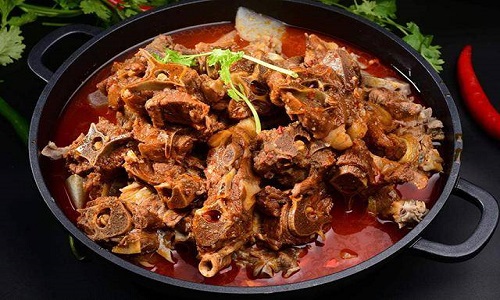
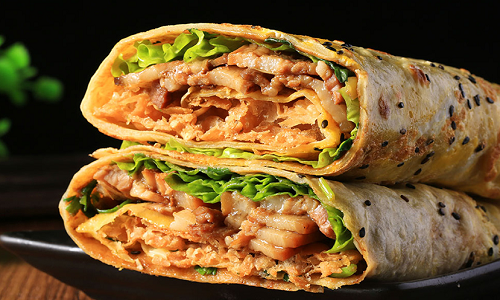
In the afternoon, we'll travel to the Olympic Park to admire the iconic Bird's Nest (National Stadium) and Water Cube (National Aquatics Center) from above. Your guide will explain the innovative design of these landmark buildings from the 2008 Beijing Olympics. The Bird's Nest, designed by Herzog & de Meuron, features a staggered steel structure that mimics the shape of a bird's nest, symbolizing unity and warmth; its retractable roof was a groundbreaking engineering feat at the time. Regarding the Water Cube, your guide will explain its unique ETFE film bubble: lightweight, waterproof, and energy-efficient, it resembles water molecules and emits a soft glow at night. Your guide will also explore the lasting legacy of the Olympics in Beijing: how these venues have been repurposed for public use (such as the Water Cube's transformation into a popular water park), and how they laid the foundation for Beijing's successful bid for the 2022 Winter Olympics, showcasing China's growing influence in global sports.
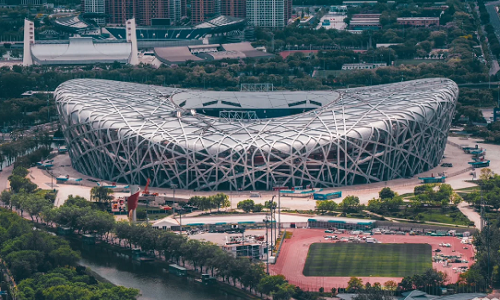
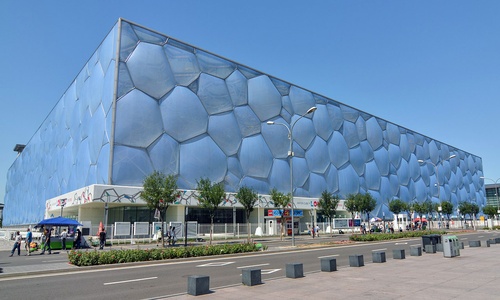
At the end of your Beijing trip, your guide will discuss tomorrow's itinerary, specifically the train journey from Beijing to Harbin. They'll remind you to pack for tonight, especially warm clothing (as Harbin's temperatures are significantly lower than in Beijing). Finally, your guide will arrange transportation back to your hotel, allowing you to relax and prepare for your upcoming Harbin adventure. They'll also recommend nearby dinner options based on your preferences, including Beijing hot pot and casual noodle restaurants.
travel tips:Warm clothing, Personal ID and passport
Your day begins with a hearty breakfast at the hotel, featuring a selection of traditional Chinese pastries, fresh fruit, and fragrant tea. After breakfast, our experienced driver will arrive promptly to assist with your luggage and carefully load your belongings into the vehicle for a safe journey.
Our driver is familiar with Beijing's traffic conditions and can safely and efficiently navigate morning traffic jams, escorting you directly to the train station entrance. Your guide will confirm all itinerary details and train tickets the day before. They will remind you to bring important documents (passport, ticket, ID card) and warm clothing, and inform you that you can eat on board if you feel hungry during the train journey. If you have any questions, please feel free to contact your guide or travel agency.
Upon arrival in Harbin, our local driver will be waiting for you at the station exit, holding a sign with the "Your Way Holiday" logo for easy identification. They will warmly greet you, assist with your luggage, and safely load it into the vehicle before taking you directly to your hotel.
After breakfast, meet your Harbin guide for a day exploring Harbin's Russian charm and ice and snow culture. First, visit the 600,000-square-meter Volga Manor, dedicated to preserving Russian architectural heritage. Upon entering, your guide will explain the estate's origins: it was built in the 21st century to recreate iconic Russian architecture that had been lost amid Harbin's urban development, such as St. Nicholas Church (begun in 1900 and destroyed in 1966). Your guide will take you through the reconstructed church, admiring its onion domes and Byzantine-style mosaics, and learn how it reflects Harbin's history as a Sino-Russian trade hub during the construction of the Chinese Eastern Railway (1897-1903).
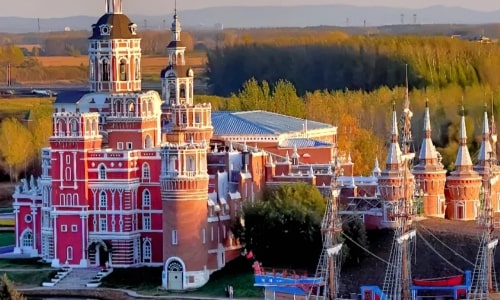
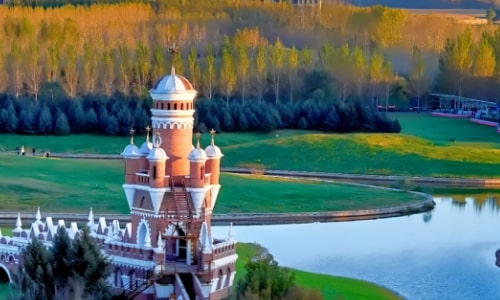
After your visit to the manor, your guide will take you on a culinary tour of authentic Harbin cuisine. Your restaurant selection will be flexible, ensuring you savor Harbin's delicious local cuisine and experience the authentic charm of the city's diverse cultural heritage. Choose from a wide variety of specialties, such as hearty borscht (beetroot soup) with sauerkraut, tender beef stroganoff topped with buttery mashed potatoes, and freshly baked pies stuffed with sauerkraut and minced pork, reflecting Harbin's Northeastern roots. You can also try "red sausage," a Harbin specialty. Your guide will explain the evolution of these dishes, which began in the early 20th century when Russian immigrants settled in Harbin and adapted recipes using local ingredients, ultimately contributing to the city's unique culinary heritage.
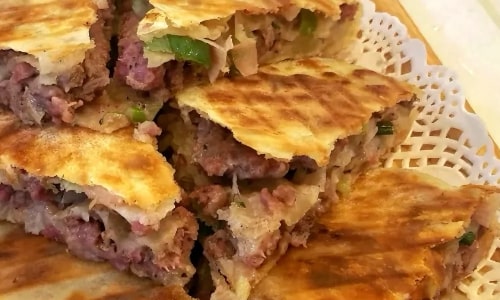
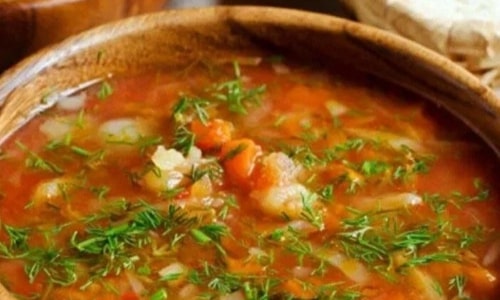
Next, you'll visit Harbin Ice and Snow World, the world's largest ice and snow theme park, opened in 1999 to celebrate Harbin's centennial. Your guide will explain the annual transformation of the park, where over 100,000 cubic meters of ice and snow are collected from the Songhua River and sculpted into sculptures by a team of artists from both China and abroad. Your guide will highlight key attractions, such as the 50-meter-tall Snow Castle (modeled after a European palace) and the ice slide, and discuss the cultural significance of ice and snow in Harbin: it's more than just entertainment, but a symbol of the city's resilience in the harsh winter. Your guide will also recommend warm clothing (for example, hand warmers available at nearby stalls) and help you time your visit to popular sculptures to avoid crowds.
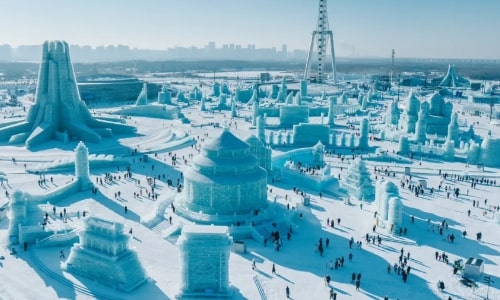
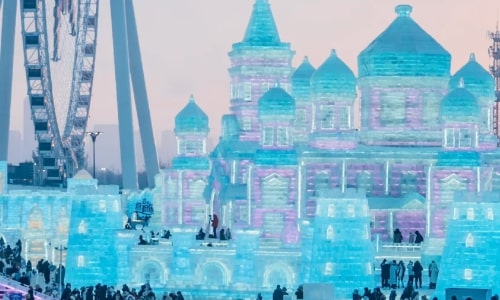
The tour concludes with a visit to Sun Island, a river island on the Songhua River that has been a popular retreat since the early 20th century. Your guide will trace its history: once a private villa complex for Russian nobles, it was transformed into a park in the 1950s. They'll lead you through the gardens, visit the "Sun God" sculpture (the park's landmark), and explain how the island's natural beauty—pine forests, wetlands, and river views—complements Harbin's urban bustle. Your guide will also share stories about the annual Sun Island Flower Show (held in the summer) and how the island adapts to winter with its ice lantern displays, adding a touch of splendor to its world of ice and snow.
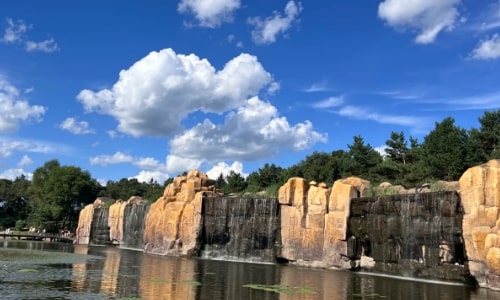
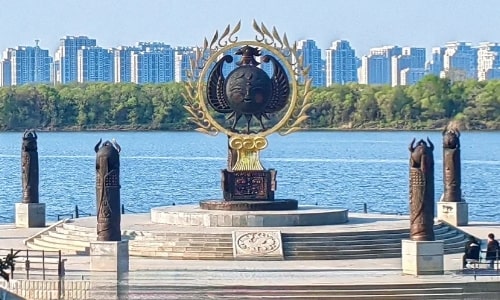
Before returning to your hotel, your guide will outline tomorrow's itinerary: we'll travel from Harbin to Xuexiang, passing through Yabuli. Because the temperatures in Xuexiang are low and the terrain can be covered in snow, your guide reminds you to bring warm, waterproof clothing and sturdy boots. He also reminds you that the drive takes approximately four to five hours, so you might want to bring snacks or a book. He also mentions that Yabuli is a famous ski resort, and if you'd like to take a short ski trip during your stay, he can help arrange one. Finally, he'll confirm your departure time from the hotel the next day and answer any questions you may have about your upcoming trip to Xuexiang.
travel tips: warm and waterproof clothing, sturdy boots
Today, your guide will take you to the picturesque Snow Town, stopping at Yabuli Ski Resort, known as the "Ski Capital of China." En route, your guide will share the history of Yabuli: how Japanese ski enthusiasts discovered it in the 1980s and developed it into a ski resort. In 1996, Yabuli Ski Resort hosted the Asian Winter Games, bringing Chinese skiing to the world stage. Your guide will also explain the significance of Yabuli Ski Resort: it trained China's first generation of professional skiers and promoted skiing as a leisurely activity for Chinese tourists. If you're interested, your guide can arrange short ski lessons for beginners or take a cable car to the top of Yabuli Mountain, where you can enjoy panoramic views of the snow-capped forests.
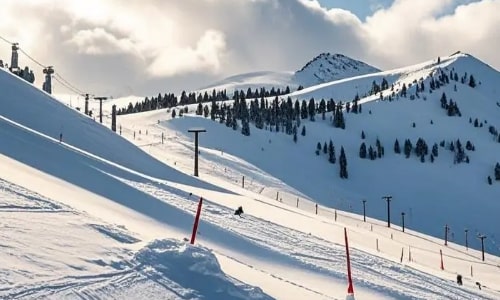
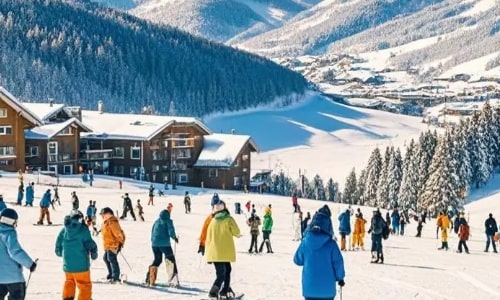
After your visit to Yabuli Ski Resort, your guide will take you to several cozy restaurants near the resort to sample a variety of authentic Northeastern cuisine. You can choose from a variety of dishes tailored to your taste. The menu is extensive, including dishes like "Sour Cabbage and Vermicelli Stewed Pork" (a Northeastern specialty where the sourness of the cabbage counteracts the greasy pork), "Wild Mushroom Stewed Chicken" (featuring fresh mushrooms harvested from the nearby forest), and "Potato-Braised Pork Ribs" (tender pork ribs slow-cooked with local potatoes). For lighter dishes, there are also stir-fries like "Scrambled Eggs with Leeks" and "Spicy Shredded Potatoes," as well as handmade "Northeastern Steamed Buns" or "Tortillas." Your guide will explain the characteristics and local specialties of each dish, helping you make informed choices and can accommodate special requests such as vegetarian or lighter dishes.
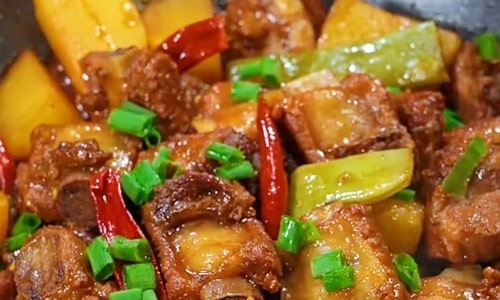
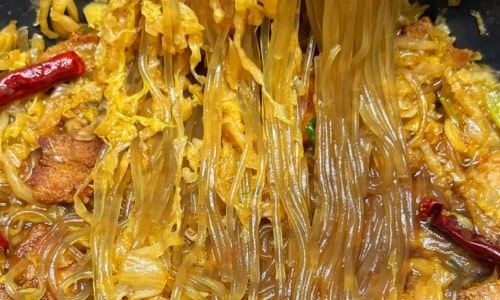
Continuing to Snow Village (officially known as Shuangfeng Forest Farm), your guide will recount its transformation: once a remote logging village, it became famous in the early 21st century for its "snow mushrooms"—sun-carved wooden huts buried meters beneath the snow. Your guide will also explain the climate of Snow Village: Located in Changbai Mountain, Snow Village enjoys abundant annual snowfall (averaging up to two meters) and extremely low winter temperatures (during winters, temperatures can reach -20°C to -30°C), making it a unique winter destination. Upon arrival, your guide will take you to a traditional "fire kang" (kang) homestay and explain how Northeastern people have used the kang (a stove-heated brick bed) for centuries to withstand the cold winter weather.
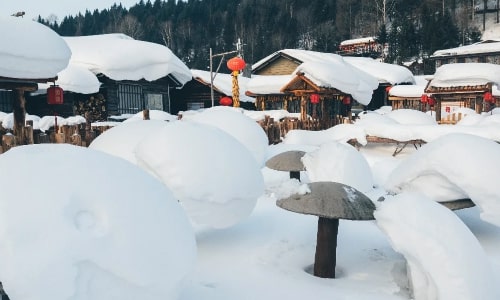
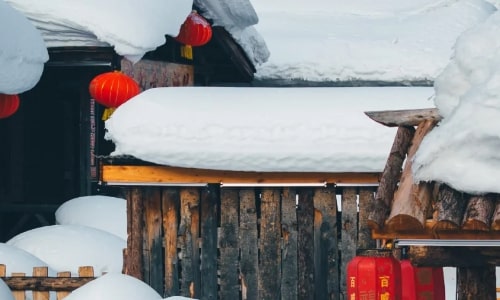
In the evening, your guide will lead you in enjoying folk songs and dances, including the "Northeastern Yangge." While bonfire evenings aren't held every day, your guide will explain their cultural significance: originally celebrating the harvest and dispelling winter boredom, they have become a way to showcase Northeastern culture to visitors. For dinner, your guide will offer two options: a home-cooked Northeastern-style meal at the homestay or dining in a small, rustic restaurant. Simply let your guide know your preference, and they'll assist in arranging it.

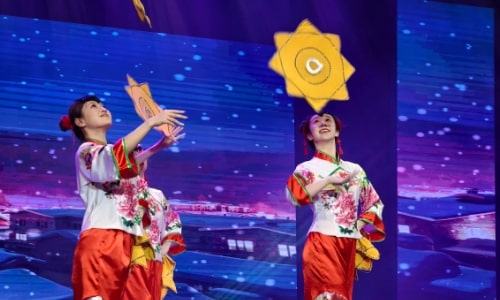
A wonderful day begins with a hearty breakfast. Featuring a hearty selection of Northeastern specialties to satisfy every palate, this warming breakfast will prepare you for a full day of winter activities. Join your guide for a full day of exploring the winter wonderland of Xuexiang. Early in the morning, you'll depart from the Xuexiang Observation Deck, a small hill on the outskirts of the village. During the ascent, your guide will explain the science behind Xuexiang's snow accumulation: the region's high humidity and low temperatures create a light, fluffy "dry snow" that accumulates on rooftops without sliding off. From the observation deck, you'll gaze out over Xuexiang: rows of snow-capped houses, their eaves adorned with red lanterns, a familiar sight in Chinese winter photography.
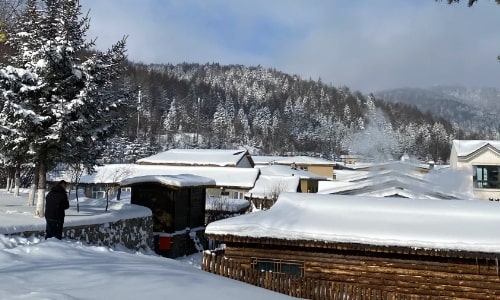
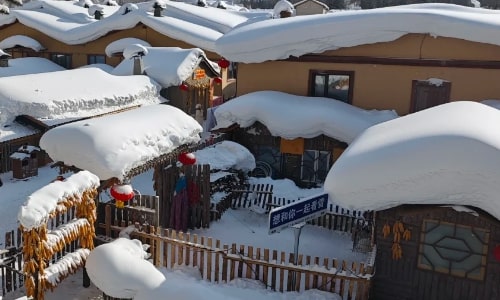
Back in the village, don a Northeastern flowered jacket and immerse yourself in its unique charm. The vibrantly colored and traditionally floral designs of the flowered jacket are an iconic symbol of rural Northeast China. You'll now be free to move around freely, with your guide by your side, providing translation and assisting with any requests. You can also take photos against the backdrop of the snow-capped "snow mushroom" houses and red lanterns, creating unique memories of your trip to Snow Town. Your guide will also share interesting facts about the flowered jacket: originally designed for warmth and durability, it has become a symbol of Northeastern folk culture, beloved by tourists and a popular choice for cultural experiences.
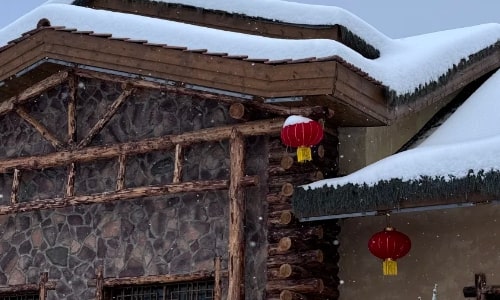

After some free time and photo opportunities, you'll enjoy a simple yet authentic lunch at a village farmhouse, prepared by villagers using local ingredients, giving you a glimpse into the rich flavors of rural Northeast China.After lunch, your guide will take you on a stroll through the village alleys, visiting traditional wooden houses with lattice windows covered with paper (a traditional method of insulation). They'll also introduce you to local artisans, such as an elderly woman crafting "paper cutting," a Northeastern folk art used to decorate homes during festivals. Your guide will explain the symbolic meaning of the paper cutting: patterns like fish (symbolizing prosperity) and peonies (symbolizing good luck) reflect the villagers' hopes for the future.
In the afternoon, your guide will take you on a horse-drawn sleigh ride through the forest (prices negotiable with the locals) or snow tubing on the hillside. Your guide will share the history of these activities: once essential transportation and recreation in rural Northeast China, they now offer visitors a glimpse into traditional life. As evening falls, your guide will take you to the village square, where snow sculptures illuminated by colorful lights create a magical atmosphere. Your guide will explain how the lights enhance the texture of the snow and make the sculptures shimmer. For dinner, you can choose to enjoy a home-cooked meal at your homestay or explore the village's other small restaurants—just let your guide know your preference.
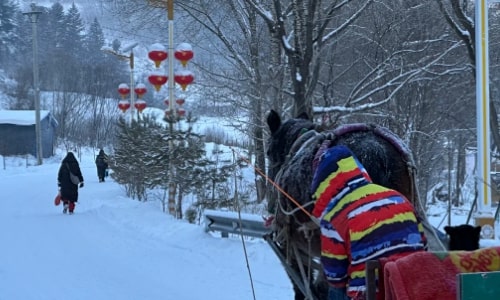

Before your tour concludes, the tour operator will also provide you with advance notice of the day's itinerary and schedule, allowing you to fully prepare.
After breakfast, your guide will drive to Jingpo Lake, a UNESCO World Heritage Site and China's largest volcanic barrier lake. Along the way, your guide will explain the lake's formation: approximately 10,000 years ago, a volcanic eruption dammed the Mudan River, creating the 90-square-kilometer lake. Along the way, your guide will explore geological features such as lava flows and volcanic cones, explaining how they illustrate the volcanic activity in Northeast China.
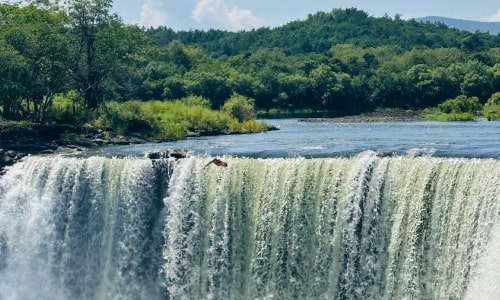
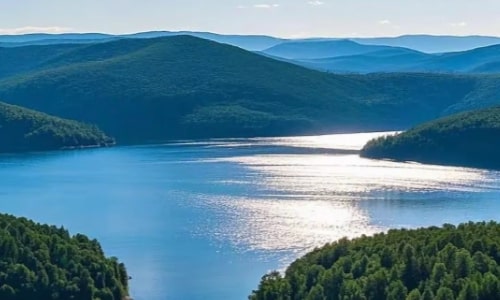
Upon arrival at Jingpo Lake, your guide will first take you to a cozy lakeside restaurant for lunch, where you'll savor dishes showcasing Jingpo Lake's natural resources and local culinary traditions. Lunch will feature fresh lake ingredients, such as steamed Jingpo Lake whitefish (a protected species sustainably fished according to local regulations) and a delicious fish ball soup made with freshly caught carp. Besides seafood, the region also offers a rich menu of local dishes, such as the nourishing Northeastern specialty ginseng braised chicken and a stir-fry of wild mushrooms harvested from the surrounding forests, served with fluffy wood-fired tortillas. You can choose your favorite dish. Your guide will explain how the lake's unique ecosystem nourishes these ingredients and how local families have passed down these culinary skills from generation to generation. After lunch, you'll visit the ruins of the ancient city of Bohai, located on the lakeshore. This was the capital of the Bohai Kingdom (698-926 AD), a powerful state founded by the people of Mohe. Your guide will explain Bohai's history: as a vassal state of the Tang Dynasty, it absorbed Han culture and built its city in the Tang architectural style. Your guide will show you the ruins of palaces and city walls, explaining how they reflect the prosperity of the era and cultural exchange with China—for example, the use of Tang-era tiles and the symmetrical layout of the palaces.

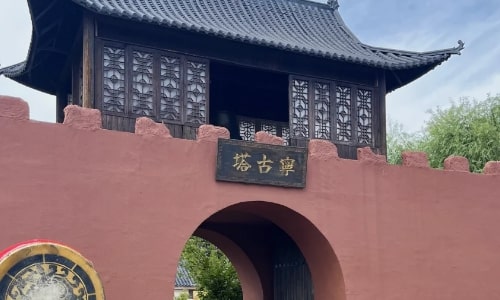
Next, you'll embark on a boat tour; your guide will ensure you're seated in a location sheltered from the winter wind and provide extra blankets if needed. You'll also visit the Diaoshuilou Waterfall, a 25-meter-high waterfall that forms a stunning curtain of ice in winter. Your guide will explain the waterfall's seasonal changes: in summer, the cascade is a majestic spectacle; in winter, it freezes over, attracting ice climbers from across the country. Your guide will also share the ecological story of Jingpo Lake, explaining the habitats of rare species like whitefish, and how the local government balances tourism and nature conservation.
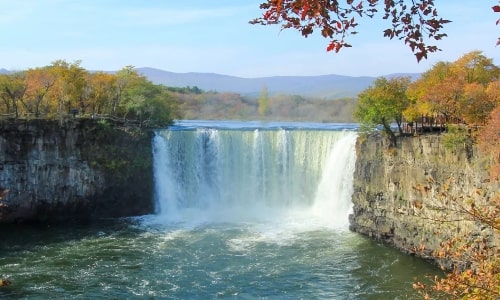
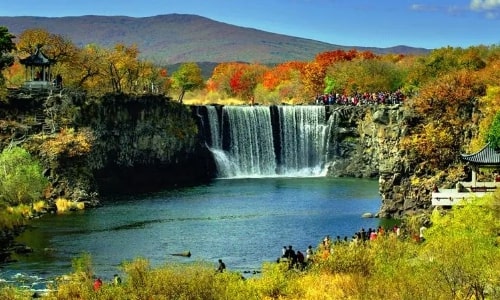
In the evening, drive to Dunhua for one night at your hotel. Along the way, your guide will share Dunhua's rich history: it was once the capital of the Bohai Kingdom (698-926 AD) and is home to the Dunhua Stone Buddha Temple, one of Northeast China's oldest Buddhist temples. Your guide will explain how Dunhua's unique culture, shaped by the intersection of Chinese, Korean, and Manchu cultures, has been shaped, from local cuisine to traditional festivals. Your guide will also recommend local restaurants, such as "Korean cold noodles" (a Korean dish made with chewy buckwheat noodles in a rich broth) and "Sand pig dishes" (a Northeastern stew featuring pork, sauerkraut, and blood sausage).
After checking into your Dunhua hotel, your travel agency will confirm your itinerary for tomorrow's trip: we'll travel to Erdaobaihe, visiting Jeongjue Temple and the Korean Folk Village along the way. The tour operator reminds you to wear comfortable, non-slip walking shoes, as we'll be exploring temple grounds and village alleyways, which can be icy. Furthermore, since we'll be visiting the Korean Folk Village, you'll be free to shop, and your guide will be with you throughout the tour to translate and answer any questions. The tour operator will also confirm your departure time the next day and inform you that breakfast will be provided at the hotel and served within a specified timeframe. If you have any questions about dining or activities at the Korean Folk Village tomorrow, please feel free to contact the tour operator, who will be happy to assist you.
travel tips:non-slip walking shoes
The day begins with a hearty breakfast at the Dunhua Hotel. This breakfast includes classic Chinese dishes like congee and steamed buns, along with local specialties. Your guide will meet you in the lobby this morning before we depart for Erdaobaihe, our first stop being Zhengjue Temple. Along the way, your guide will share the temple's history: Built during the Qing Dynasty, it's a significant Buddhist sanctuary in Northeast China, boasting a blend of Han and Manchu architectural styles. Upon arrival, your guide will briefly explain temple etiquette, such as removing hats and speaking in a low voice. They'll then lead you through the main hall, explaining the significance of the Buddha statues and intricate carvings on the beams. They'll also highlight the temple's over 300-year-old ginkgo tree, believed by locals to bring good luck.
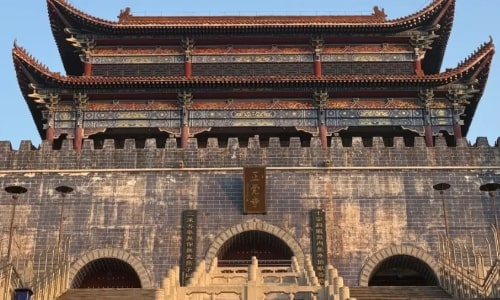
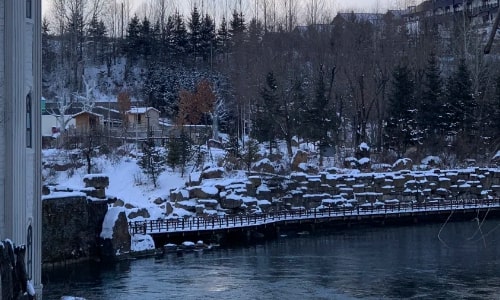
After visiting Zhengjue Temple, we'll enjoy lunch at a nearby restaurant, showcasing a delicious blend of Korean and Chinese cuisine. Enjoy specialties like spicy stir-fried squid, tofu and vegetable stew with soybean paste, and fragrant mung bean pancakes. Your guide will explain how Korean immigrants brought these recipes to the region over a century ago and integrated them with local ingredients to create unique flavors.
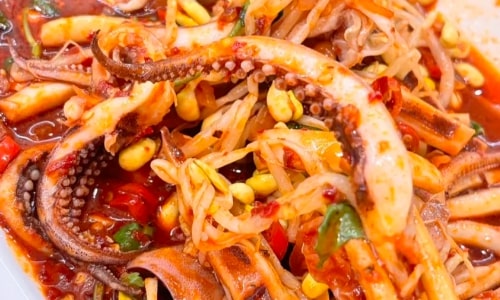
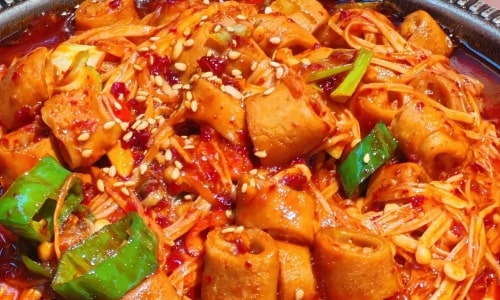
In the afternoon, we'll visit the Korean Folk Village, a living museum showcasing traditional Korean life. Your guide will show you around thatched houses and explain the function of ondol (floor heating) and the importance of family altars. You'll have the opportunity to watch artisans make hanji (Korean paper) and try your hand at kimchi—your guide will provide translation and assistance. They'll also explain the cultural traditions behind festivals like Chuseok (Korean Thanksgiving) and how the village has passed these customs down to future generations.
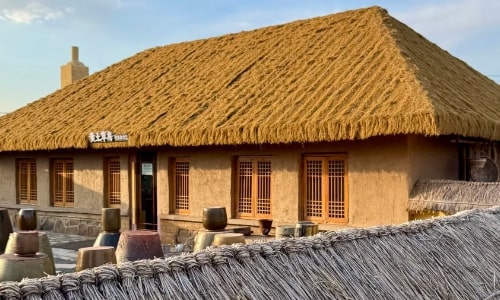
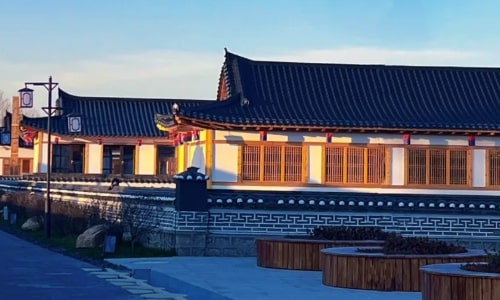
In the evening, we'll drive to Erdaobaihe and check into our hotel. Before the tour concludes, your tour guide will remind you that tomorrow we'll be visiting the North Scenic Area of Changbai Mountain. Be sure to wear warm, waterproof clothing, as temperatures there are lower than in Erdaobaihe. They'll also confirm your departure time and let you know that breakfast will be available at the hotel, making it convenient and ideal for early risers. For dinner, your guide will recommend restaurants based on your preferences.
After a quick breakfast at the hotel, we'll depart for the Changbai Mountain North Scenic Area. During the two-hour drive, your guide will explain the significance of Changbai Mountain: its status as the birthplace of the Manchu people, a sacred site in Manchu mythology, and a UNESCO Biosphere Reserve. They'll also discuss Changbai Mountain's volcanic activity, noting that Tianchi Lake at the summit is a crater lake formed by an ancient volcanic eruption.
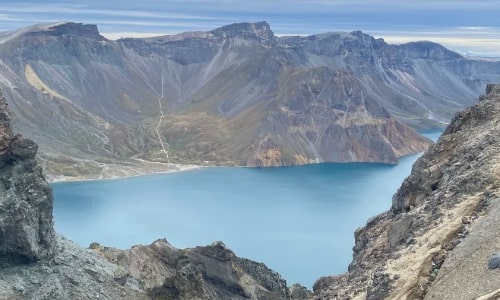
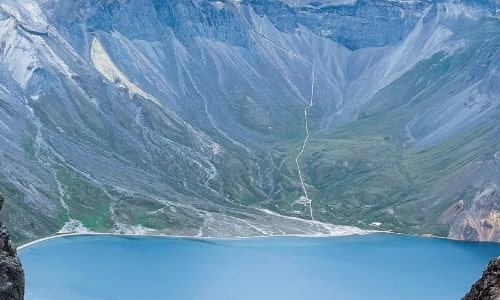
Upon arrival, your guide will assist you in purchasing tickets and arranging transportation to the summit. Along the way, they'll introduce key attractions such as Xiaotianchi Lake and Luyuantan Lake, explaining their geological formations. At Tianchi Lake, your guide will share stories about the lake, including sightings of the "Tianchi Monster," and help you find the best photo spots for unobstructed views of the lake (weather permitting). They'll also remind you to stay on designated trails to protect the fragile ecosystem.
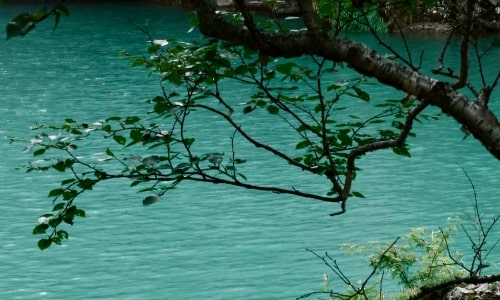
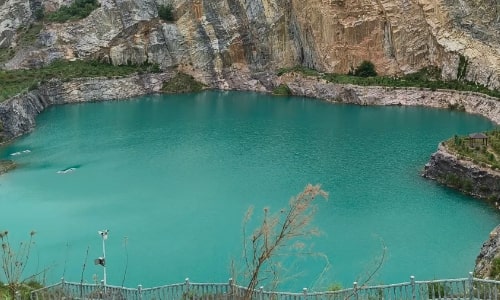
For lunch, we'll enjoy a hearty meal at a restaurant near the scenic area entrance, serving hearty Northeastern cuisine such as braised pork with vermicelli noodles, stir-fried cabbage with dried shrimp, and hot and sour soup—perfect for refueling after the hike. Your guide will ensure you avoid the crowds during lunch so you can continue exploring the area's waterfalls and forests.

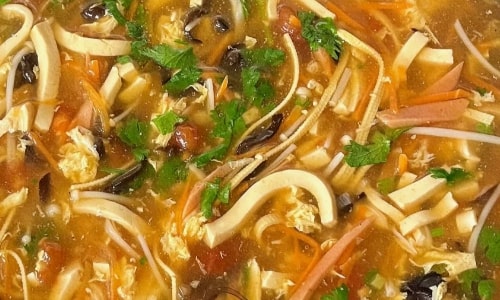
In the early afternoon, we'll Transfer to Jilin. Your guide will use this time to recap the day's highlights and share interesting facts about Jilin, such as its nickname, "Frost City." They'll also explain that tomorrow we'll be heading to Frost Island, so an early departure is recommended to maximize the beauty of the rime. We'll arrive in Jilin in the evening and check into your hotel. For dinner, your guide will recommend local specialties like "Jilin Boiled Fish" and can help you make reservations or direct you to a nearby food court.
We'll depart early in the morning to view the rime on Wusong Island. Breakfast can be taken from your hotel and enjoyed along the way. Your guide will explain how rime is formed: cold air meets warm, moist air from the Songhua River, forming delicate ice crystals on the trees. Upon arrival at Wusong Island, your guide will take you to the best viewing spots and explain the best time to see the rime in the early morning, before it melts. They'll also share techniques for taking stunning photos, such as using backlighting to highlight the crystals.
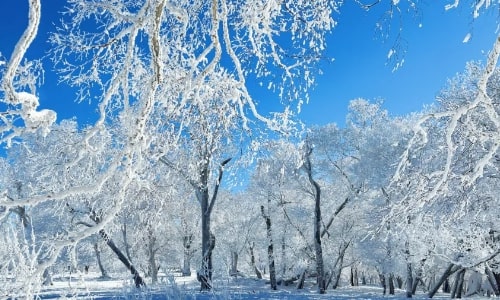
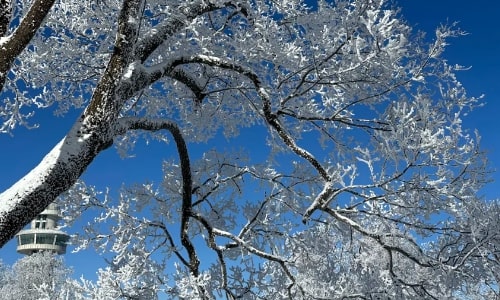
After visiting Wusong Island, we'll return to downtown Jilin for lunch at a restaurant specializing in local Jilin delicacies, such as "Songhua Fish Balls" (made with fish from the Songhua River), "Pine Nut Celery," and "Corn Flour Red Bean Paste Pancakes." Your guide will explain how the Songhua River has shaped Jilin's cuisine and provided irrigation for crops like corn and soybeans.
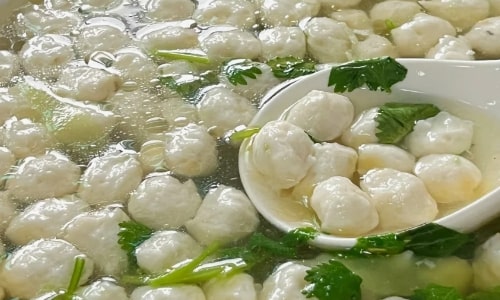
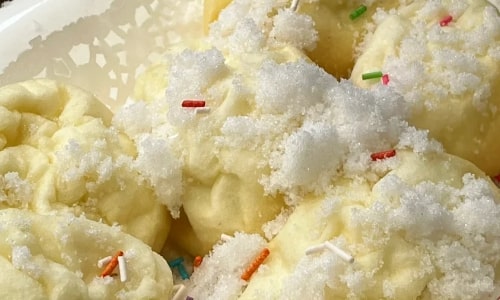
In the afternoon, we'll explore the scenic Songjiang Road along the river. Your guide will highlight landmarks such as the Jilin Bridge and explain how the road has been transformed to showcase the city's natural beauty. Next, we'll stroll along Central Street, where your guide will introduce you to the various architectural styles—from Russian-style buildings to modern shophouses—and recommend local snacks, such as "sugar-roasted chestnuts" sold by street vendors. We'll then visit Stalin Park, a riverside park with statues and pavilions, and Saint Sophia Cathedral Square (a smaller version of Harbin's famous cathedral), where your guide will share the history of Russian influence in Jilin.
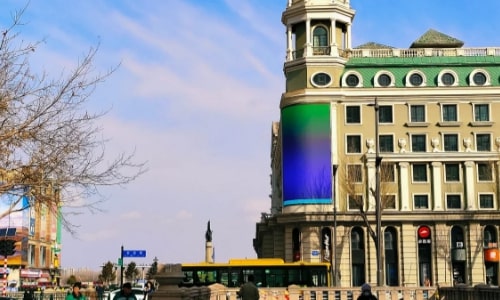
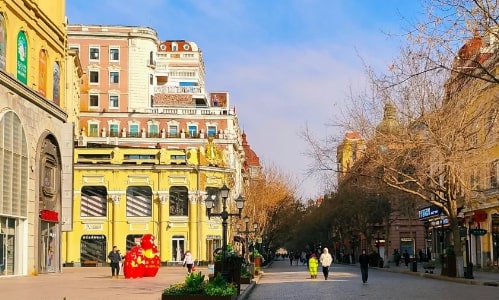
At the end of today's tour, your guide will remind you that tomorrow you'll drive to Changchun to visit the Puppet Manchukuo Imperial Palace and the Eight Ministries of Manchukuo. Because the tour involves extensive walking, it's recommended that you bring a small bag with essential items for the day. The tour will also confirm your departure time in the morning and let you know that breakfast will be served at your hotel.
After breakfast at the hotel (both Chinese and Western options available), we'll drive to Changchun. Our first stop will be Puppet Emperor’s Palace, the former residence of Puyi, the last emperor of China and the puppet emperor of Manchukuo. Your guide will show you the palace's various halls, including the Qinmin Building (where Puyi conducted "state affairs") and the Jixi Building (his bedroom), and will discuss Manchukuo's history as a Japanese puppet regime during World War II. They'll share anecdotes about Puyi's time in Manchukuo and display artifacts reflecting the political tensions of the time, providing context for this dark period in Chinese history.
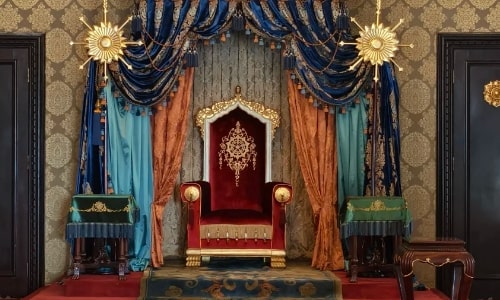
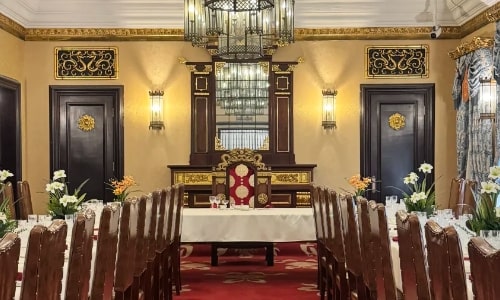
For lunch, we'll enjoy a restaurant near the Forbidden City, serving Changchun signature dishes such as spicy noodles (a local street food), braised pork with preserved vegetables, and shredded potatoes with vinegar. Your guide will explain how these dishes reflect the city's working-class roots and its former status as an industrial center.
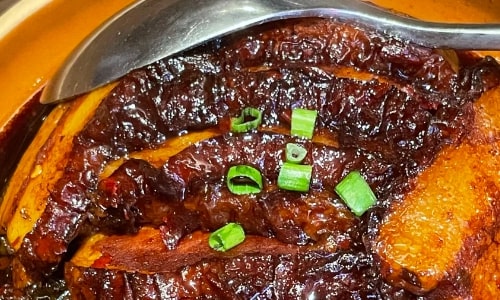
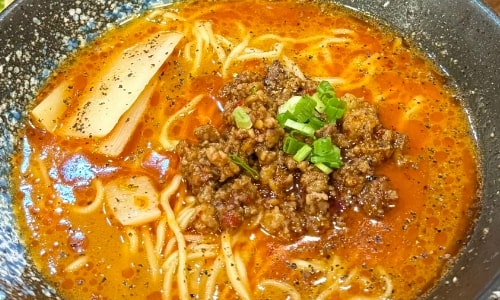
In the afternoon, we'll visit the ruins of the Eight Departments of Manchukuo, the former administrative center of the Manchukuo government. Your guide will explain the functions of each ministry and highlight architectural details that blend Japanese and Western styles, emphasizing how these buildings symbolize Japan's colonial ambitions. He will also connect the ruins to modern Changchun, explaining how the city carries on this history as a reminder of national sovereignty.
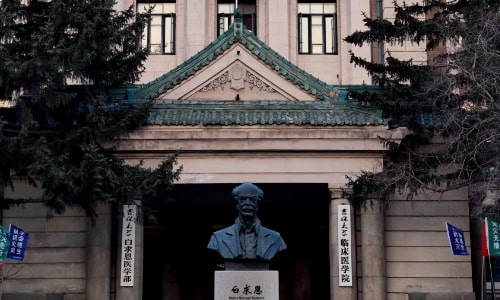
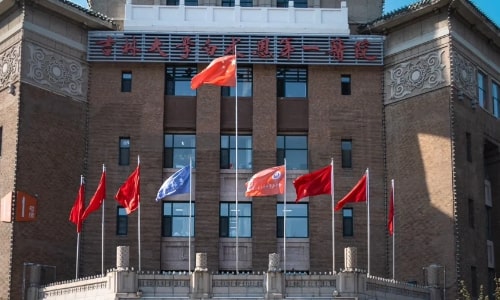
In the evening, we will check into our Changchun hotel. The tour operator will inform you that tomorrow we will visit the Zheyoushan Shopping Mall before our flight to Shanghai. As we are leaving Changchun soon, your guide will remind you to pack your luggage and recommend that you reserve time for some shopping at the shopping center. Your guide will accompany you throughout the trip and provide translation services for any questions you may have. Your guide will also confirm your departure time from the shopping center and provide details for your afternoon flight, including check-in time and airport arrangements.
After breakfast at the hotel, we'll head to the Zheyoushan Shopping Mall, one of Changchun's largest commercial centers. Your guide will explain the mall's layout and point out areas selling local specialties, clothing, and electronics. You'll have some free time for shopping, and your guide will accompany you throughout, provide translation services, and answer any questions.
Before departing for the airport, we'll enjoy lunch at a restaurant within the shopping center. The restaurant serves casual Chinese cuisine, such as braised chicken with rice, egg fried rice, and vegetable stir-fries, making it convenient and quick to arrange your itinerary. Your guide will ensure we arrive at the airport in plenty of time and assist with check-in and security procedures. They'll also provide a brief introduction to Shanghai, including the climate and upcoming itineraries, to help you prepare for your next stop.
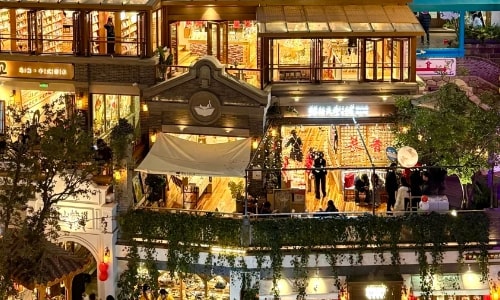
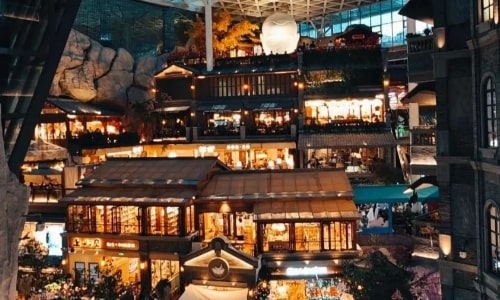
Upon arrival in Shanghai, Your Way Holiday staff will greet you at the airport with a branded sign and escort you to your hotel. The travel agency will contact you to confirm a meeting time in the hotel lobby the next day to help you plan your activities.
travel tips: personal ID, passport
Your Shanghai adventure begins with a hearty breakfast at the hotel, featuring a variety of international and local delicacies. Savor iconic dishes like "xiaolongbao" (glutinous rice dumplings filled with savory broth) and "youtiao" (crispy fried dough sticks).
Begin your sightseeing tour at Yuyuan Garden, a masterpiece of Suzhou classical gardens dating back to the Ming Dynasty. Stroll through ornate pavilions, majestic rockery, and tranquil ponds, and you'll appreciate the garden's design philosophy of "hiding without revealing." Admire the "Exquisite Jade," a limestone formation renowned for its transparency and porosity, and the "Thirty-Six Mandarin Duck Pavilion," a showcase of traditional Chinese craftsmanship. Originally built by a Ming Dynasty official, this cultural gem serves as a living museum showcasing the harmonious fusion of nature and architecture cherished by Chinese aesthetics.
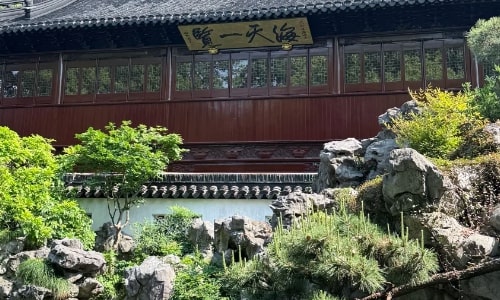
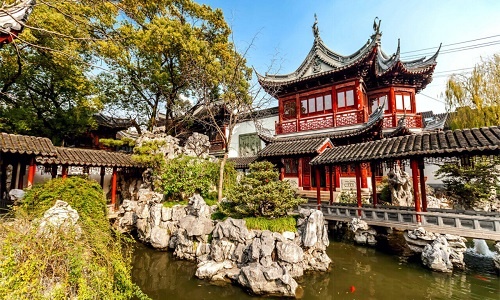
After exploring the garden, indulge in a Shanghai culinary adventure at nearby restaurants that specialize in local flavors. Here, you’ll savor specialties that reflect the city’s status as a culinary melting pot: the perfectly balanced "sweet and sour spare ribs," where tender pork is coated in a glossy sauce that blends tangy vinegar, rich soy sauce, and a hint of sweetness; "red-braised pork," chunks of fatty pork slow-cooked until melt-in-your-mouth soft, infused with the aroma of star anise, cinnamon, and Shaoxing wine; and the ever-popular "shrimp xiaolongbao," where plump shrimp replace pork for a lighter, brinier twist on the classic dumpling. The meal is tailored to your preferences, whether you prefer milder flavors or a touch of spice, and offers a chance to taste how Shanghai’s cuisine draws inspiration from neighboring regions like Jiangsu and Zhejiang, while adding its own refined touches.
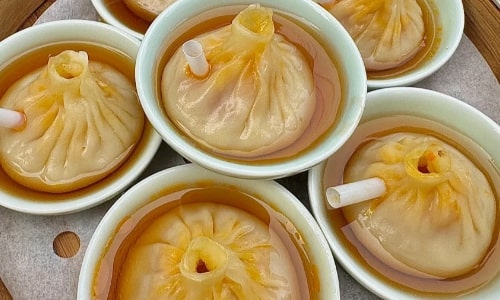
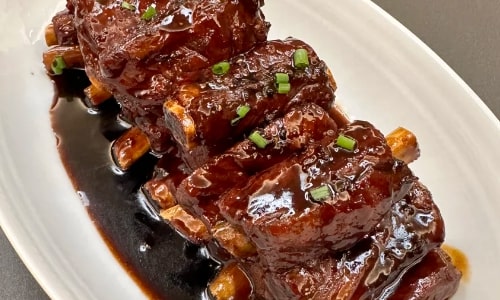
Next, explore Shanghai Bazaar, a vibrant market nestled near Yuyuan Garden, where rows of stalls brim with traditional handicrafts and local souvenirs. Here, you’ll find everything from delicate jade carvings and hand-painted fans (featuring scenes of Shanghai’s skyline or classical landscapes) to silk scarves in bold, colorful patterns and small wooden toys crafted by local artisans. You’ll have free time to browse and shop, and your guide will stay by your side throughout, helping to translate between you and vendors, offering insights into the history of each craft (like how jade carving has been a Shanghai tradition for centuries) and assisting with any requests, whether you’re looking for a specific item or need help negotiating prices.
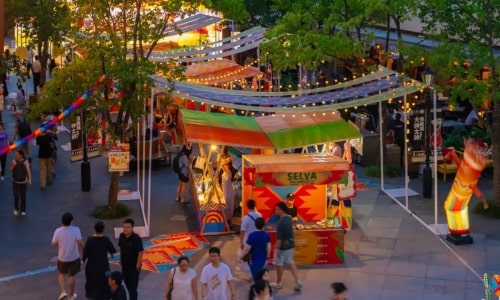
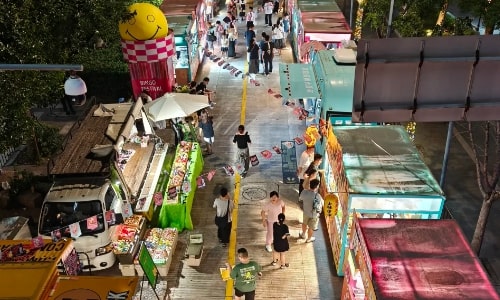
Proceed to the Old French Concession, a neighborhood that embodies Shanghai's colonial past. Stroll along tree-lined boulevards lined with elegant French-style buildings. Visit landmarks like the former French Consulate and the Shanghai Concert Hall, and learn how the area evolved from a 19th-century foreign enclave to a fashionable cultural hotspot. The blend of European architecture and local Shanghainese life is breathtaking, offering a glimpse into the city's complex history.
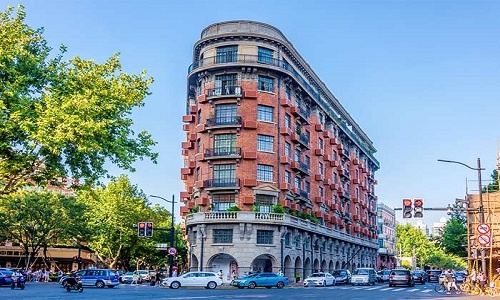
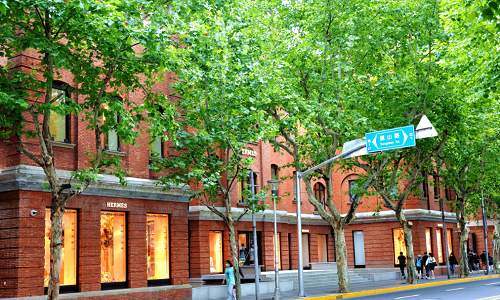
Next, head to the Bund, a 1.5-kilometer waterfront promenade that stands as a symbol of Shanghai’s transformation into a global financial center. Lining the west bank of the Huangpu River, the Bund is home to over 50 historic buildings, each showcasing a different architectural style—from Gothic Revival with its pointed arches and stained glass to Art Deco with its sleek lines and geometric patterns, and neoclassicism with its grand columns and symmetry. These buildings, once the headquarters of foreign banks, trading firms, and hotels, tell the story of Shanghai’s economic rise in the early 20th century, when it was known as the "Paris of the East." As you walk along the promenade, you’ll see iconic structures like the Peace Hotel (originally the Sassoon House, with its distinctive green copper roof and Art Deco interior) and the HSBC Building (now the Shanghai Pudong Development Bank Building, famous for its grand dome and the inscription "The art of banking is the art of simplicity"). Across the river, the skyline of Pudong—with its towering skyscrapers like the Oriental Pearl Tower and the Shanghai Tower—stands in striking contrast, a reminder of the city’s rapid modernization and its status as a 21st-century global hub.
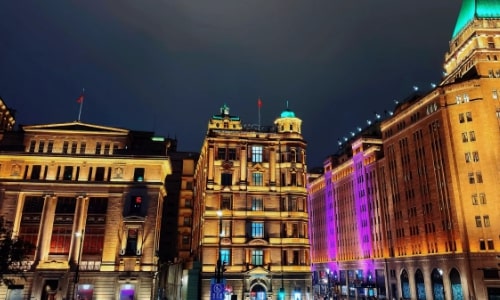
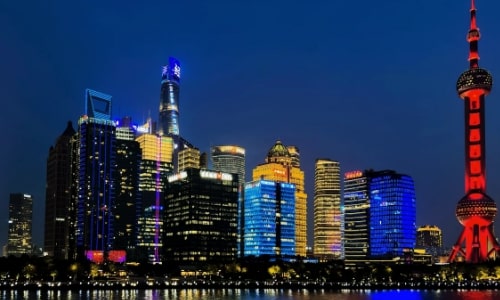
Finally, end your day on Nanjing Road, one of the world’s busiest shopping streets, stretching over 5 kilometers from the Bund to Jing’an Temple. This bustling thoroughfare is a mix of modern malls, historic department stores (like Shanghai No. 1 Department Store, founded in 1917), and street vendors selling local snacks. Soak up the vibrant atmosphere as neon signs light up the street, and crowds of shoppers and tourists weave between shops. Take time to explore popular stores, from international brands to local boutiques selling Shanghai-themed souvenirs, and savor street food from stalls that have been serving locals for decades: try crispy scallion pancakes, where a flaky dough is stuffed with minced scallions and pan-fried until golden, or venture into stinky tofu—a polarizing but beloved snack, where fermented tofu is deep-fried and served with a spicy or sweet sauce, beloved by locals for its bold, umami flavor.
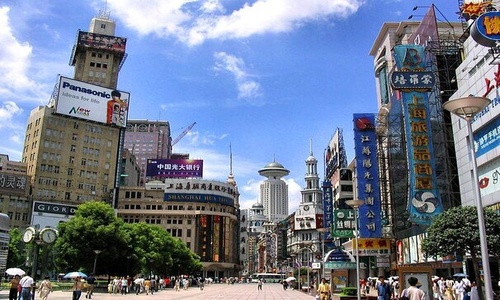
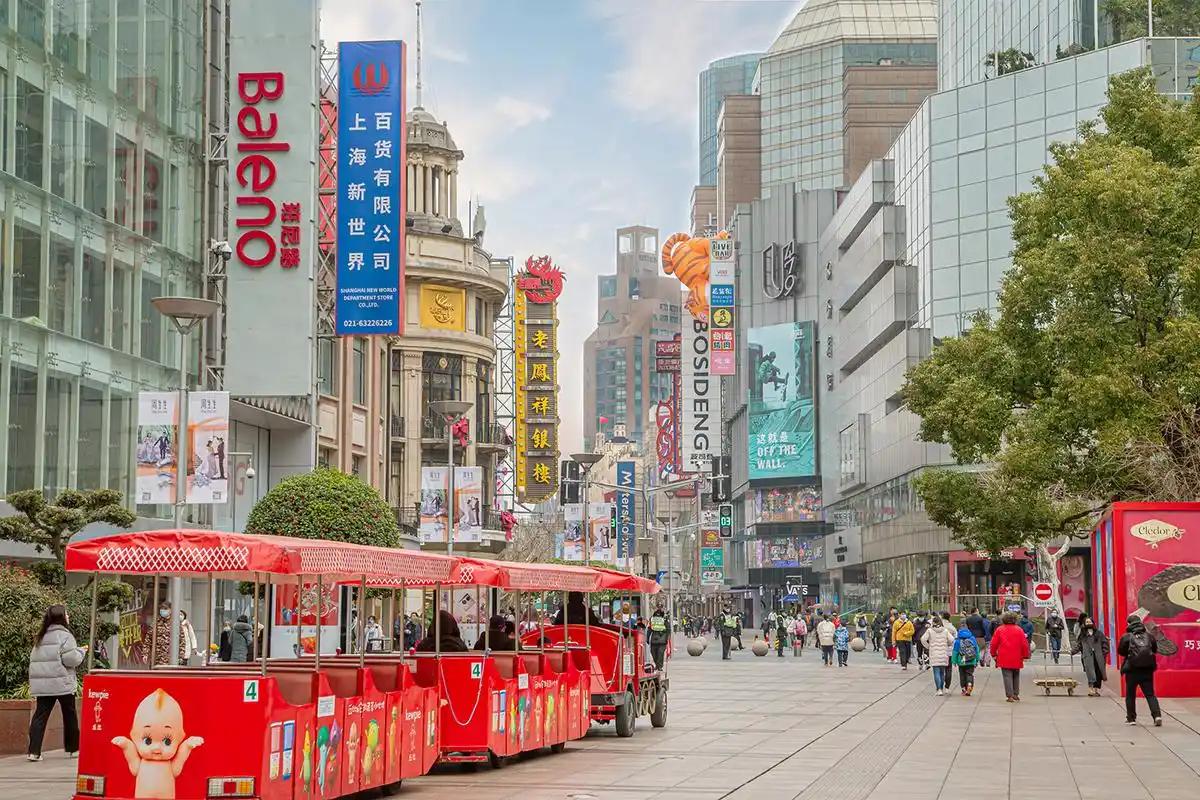
Upon return to your hotel, your tour operator will provide you with instructions for the next day. Prepare to explore Zhujiajiao Water Village, and wear comfortable shoes to explore the picturesque stone bridge. Learn about breakfast hours and dinner options, whether dining at a renowned Shanghai restaurant or exploring the local street food markets.
After breakfast at the hotel, we'll drive to Zhujiajiao Water Village, affectionately known as the "Venice of Shanghai." This ancient town, with its thousand-year history, was once a bustling commercial port on the banks of the Huangpu River. Its prime location fostered a rich trading culture, shaping its unique architecture and cultural landscape. Today, ancient waterways and stone bridges still stand, bearing witness to its rich history and offering a glimpse into traditional Chinese life.
Upon arrival, your guide will take you on a stroll through the town's winding alleys. The streets are lined with traditional houses with whitewashed walls and black tiles, their facades reflecting the classic local architectural style. The layout of the ancient town, centered around its waterways, skillfully integrates human settlement with the natural environment, a hallmark of ancient Chinese urban planning.
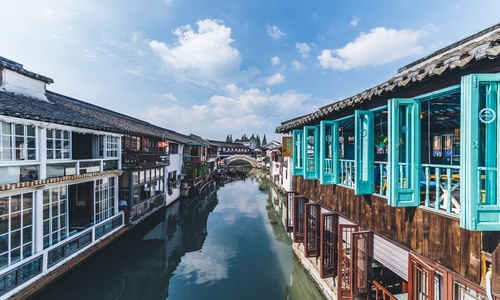
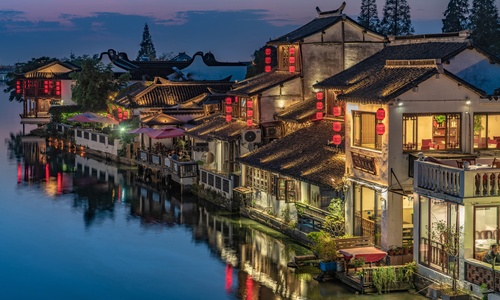
A highlight of this trip is a leisurely boat ride along the town's canals. During your boat ride, your guide will introduce you to some of its notable landmarks, including the majestic Fangsheng Bridge. This architectural marvel, one of the largest stone bridges in the region, is not only a vital transportation hub but also a treasure trove of cultural heritage. Its name, meaning "Release Life Bridge," draws inspiration from the Buddhist custom of releasing animals, a symbol of compassion and the preservation of life. The bridge has witnessed countless historical changes and has silently witnessed the city's transformation over the centuries.
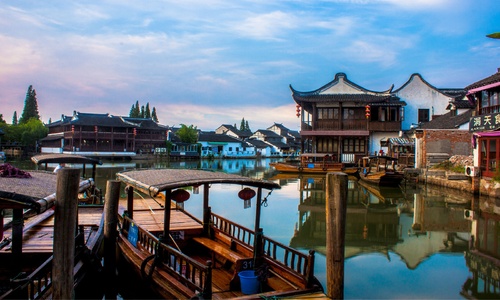
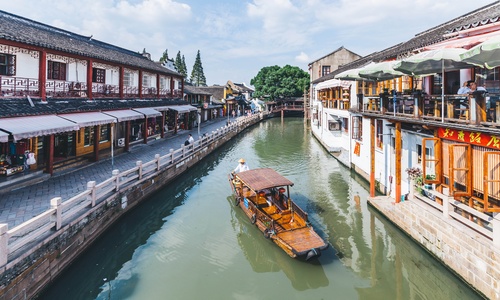
For lunch, we'll stop at a charming riverside restaurant to savor a variety of water town specialties. Dishes like "Scallion-Braised Eel," "Sweet and Sour Lotus Root," and "Zhujiajiao Rice Cake" will not only delight your taste buds but also tell the story of the city's culinary heritage. Influenced by its abundant water resources, Zhujiajiao's cuisine focuses on fresh seafood and aquatic vegetables, offering a unique culinary experience rooted in its geography and culture.
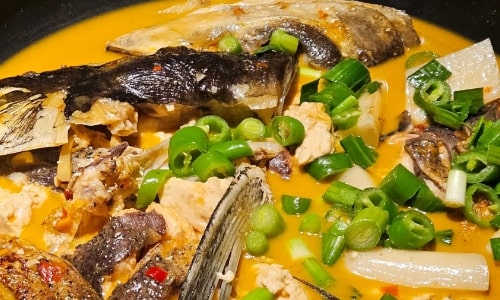
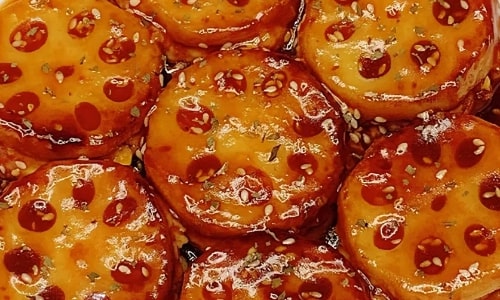
In the afternoon, we'll continue our exploration, visiting the town's temples and museums. Kezhi Garden, a classical Chinese garden, offers tranquil beauty. Built during a period of prosperity in Zhujiajiao's history, it embodies the essence of Chinese garden art. Its pavilions, rockery, flowing water, ponds, and meticulously designed gardens offer visitors a tranquil retreat where they can appreciate the harmonious blend of nature and architecture.
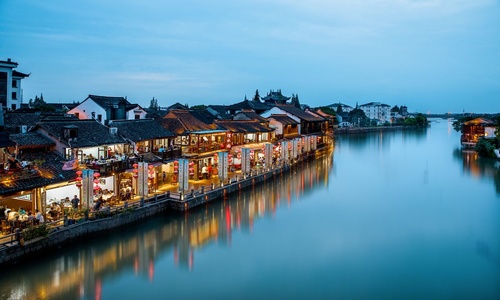
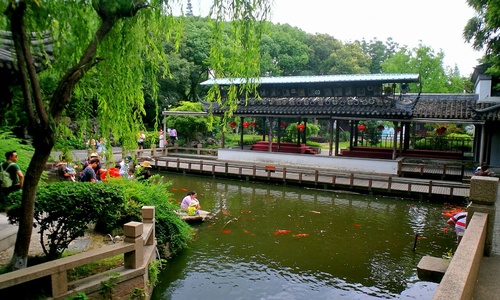
The Zhujiajiao Museum, on the other hand, offers a comprehensive overview of the town's history. Through its collection of artifacts, photographs, and interactive exhibits, the museum chronicles Zhujiajiao's development from a small fishing village into a thriving commercial center. The museum also delves into Zhujiajiao's cultural traditions, folk customs, and the lives of its former residents, offering visitors a deeper understanding of the local community's identity and heritage.
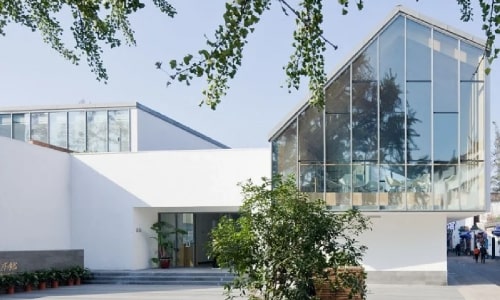
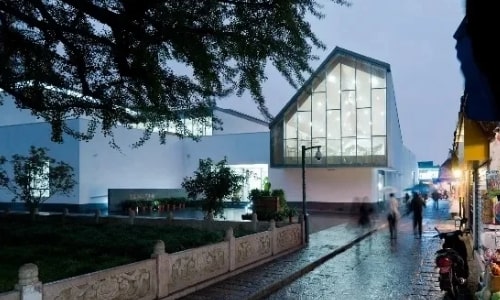
Wandering through the town, you'll also have the opportunity to browse local shops selling a variety of handicrafts. Bamboo products are a traditional local craft, showcasing the craftsmanship and creativity of local artisans. From intricately carved ornaments to practical household items, these crafts make for unique souvenirs. Desserts like "rice flower candy" offer a glimpse into the local flavor, allowing you to take home a taste of Zhujiajiao's culinary culture.
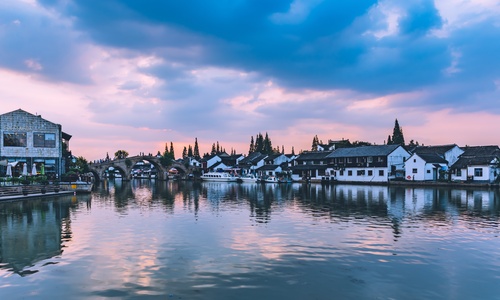
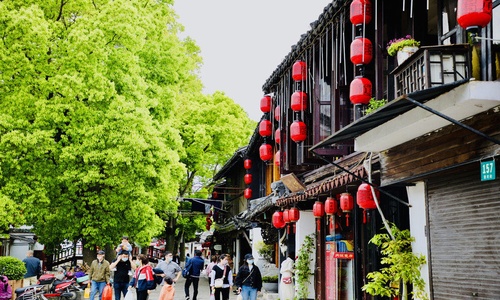
We will return to Shanghai in the evening. Your travel agency will notify you of tomorrow's departure time. They will confirm your hotel pick-up time based on your flight schedule and remind you to check out and pack your documents before departure. Your guide will also assist with any urgent needs, such as arranging transportation or recommending a shopping list. They can recommend an unforgettable restaurant or street food market for your last dinner in Shanghai, leaving you with fond memories of the city.
On the day of departure, your driver will arrive at your hotel at the scheduled time, based on your flight or train schedule. They will assist you with loading your luggage and ensure you have everything you need for your trip. They will also arrange a quick stop at a convenience store if you need to purchase any last-minute items. Upon arrival at your destination, your driver will assist you with unloading your luggage and wish you a safe and pleasant journey.
Price Per Person in US Dollars
Personalized Travel Consultant
Experience the best of China with our expert travel consultants by your side. With years of local tourism experience, they are not only professional and knowledgeable but also deeply committed to making your trip unforgettable. Your dedicated consultant will craft a bespoke tour plan tailored to your unique interests, schedule, and budget, offering you the utmost flexibility. From the moment you start planning until the end of your journey, they will be in touch, ensuring every detail is perfect and that your trip runs smoothly.
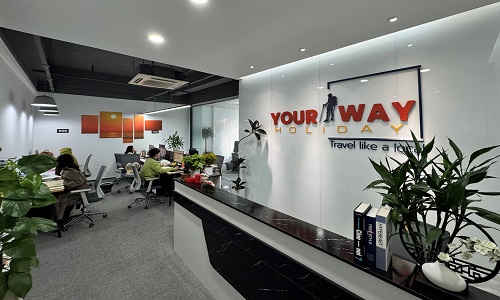
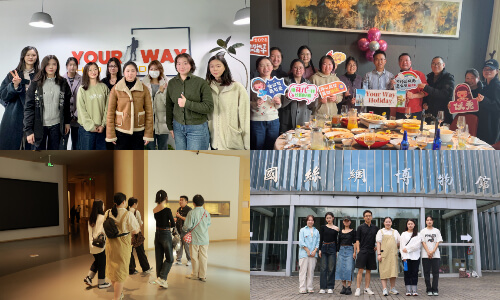
Exceptional Local Guides
Discover it through the eyes of our exceptional local guides. All certified and experienced, they are passionate about sharing their deep knowledge of attractions, history, and culture. Whether you're interested in hidden gems or popular sites, they know the best places to visit. They can recommend top local restaurants, unique shopping spots, and must-see shows. Beyond just guiding, they provide enriching insights into the history, customs, and authentic daily life, making your experience truly immersive.
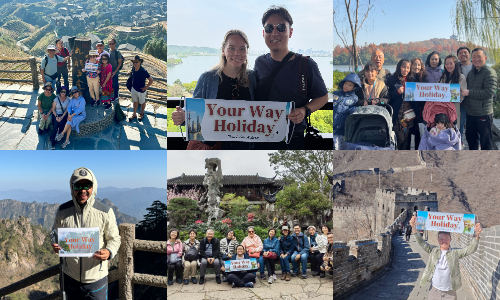
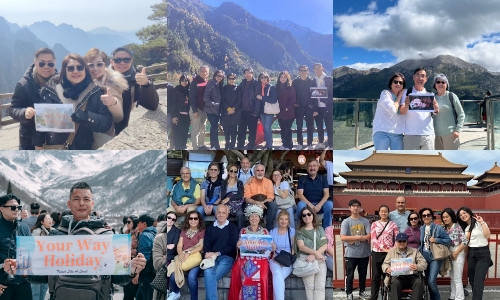
Premium Private Transportation
Travel in comfort and style with our premium private transportation. We offer a fleet of air-conditioned, non-smoking, clean, and meticulously maintained vehicles, all less than four years old. Our professional drivers, all locals with over a decade of driving experience, are friendly, courteous, and dedicated to your safety and comfort. Depending on your group's size, we provide a range of vehicles, including sedans, SUVs, business vans (MPVs), and spacious buses, all with ample luggage space.
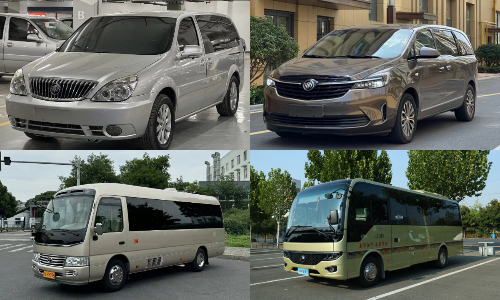
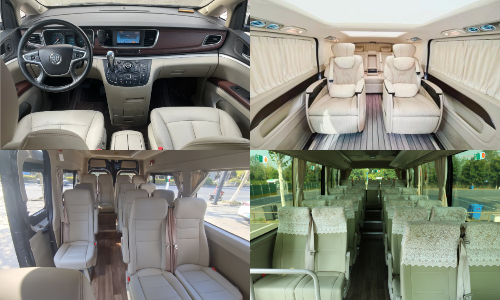
Authentic Dining Experiences
We prioritize genuine local culinary experiences over pre-arranged tourist restaurants. Our local guides will recommend the best local restaurants where you can savor authentic flavors. This approach ensures you enjoy the freshest, most authentic meals, tailored to your preferences, and experience the true essence of the local cuisine. Whether your dietary needs are vegetarian, Muslim, Chinese, Western, Jewish, or Indian, we have excellent options to make every meal a delightful part of your journey.
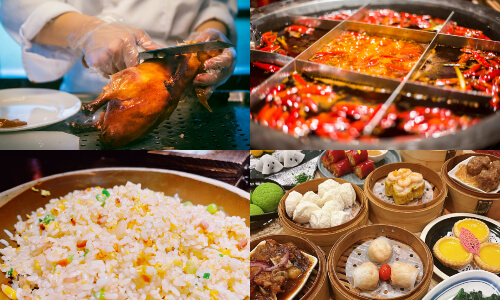
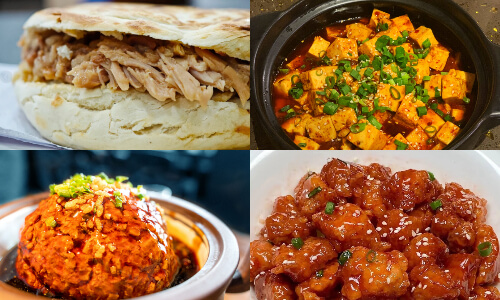
Duration:8 Days, 7 Nights
Attractions(Cities):Shanghai, Xian, Beijing
Tour Style:Ultimate 8-Day Private China Tour: Beijing, Xi'an & Shanghai with High-Speed Train Adventures is the ideal way for first-time visitors to discover the best of China. This private tour seamlessly connects the vibrant metropolis of Shanghai, the ancient wonders of Xi'an, and the cultural riches of Beijing. In Shanghai, marvel at the stunning skyline, explore the historic French Concession, and wander through the peaceful Yu Garden. In Xi'an, witness the world-famous Terracotta Warriors and enjoy a fun family bike ride along the ancient City Wall. Finally, in Beijing, step back in time with visits to the majestic Forbidden City, walk the iconic Great Wall, and explore the tranquil Temple of Heaven. Experience the convenience and comfort of high-speed bullet trains traveling between cities, all while being guided by an expert who brings China’s rich culture, history, and modern marvels to life. This tour offers a perfect blend of adventure and relaxation, making it an unforgettable journey through China’s highlights.
Duration:10 Days, 9 Nights
Attractions(Cities):Beijing, Xian, Guilin, Shanghai
Tour Style:The best China tours for families come to life with this 10-Day Best of China Family Tour, offering a perfect blend of history, culture, and adventure in Beijing, Xi'an, Guilin, and Shanghai. In Beijing, families can marvel at the grandeur of the Forbidden City, stroll through Tiananmen Square, and hike the awe-inspiring Great Wall, creating lasting memories. Next, travel to Xi'an, where you’ll cycle along the ancient City Wall, discover the Terracotta Warriors, and immerse in the vibrant Muslim Quarter. In Guilin, take a scenic Li River cruise, wander through the beautiful countryside, and explore the fascinating Reed Flute Cave. Finally, in Shanghai, blend the old and new with visits to the Yu Garden, the Bund, and enjoy family fun at Shanghai Disneyland. A peaceful boat ride through a charming water town offers the perfect way to unwind. This all-inclusive family tour ensures a seamless experience with accommodations, expert guides, domestic flights, meals, and transport, making it the perfect family adventure through China’s most iconic sights.
Duration:21 Days, 20 Nights
Attractions(Cities):Beijing, Xian, Guilin, Kunming, Dali, Lijiang, Shangri-La, Chongqing, Yangtze River Cruise, Shanghai
Tour Style:Book this 21-day China private tour and experience the best China tours across the country's most iconic destinations, including scenic Yunnan, the majestic Yangtze River, Beijing, Xi'an, Guilin, Kunming, Dali, Lijiang, Shangri-la, Chongqing, Yichang, and Shanghai. Our professional tour guide will lead you through the diverse and rich cultures of southwest China, highlighting the amazing ethnic customs and traditions. Along the way, you'll enjoy some of the best China tours, taking in the breathtaking landscapes like the Li River in Guilin and a relaxing voyage along the Yangtze River. This tour offers a perfect combination of China’s deep historical roots, including the ancient wonders of Beijing and Xi'an, with the stunning natural beauty of Lijiang, Dali, and Shangri-la. From the timeless heritage to the awe-inspiring sceneries, this China private tour is the ultimate way to explore China’s most majestic and culturally significant spots, offering a truly unforgettable experience.
Duration:24 Days, 23 Nights
Attractions(Cities):Shanghai, Suzhou, Huangshan, Hangzhou, Guilin, Lijiang, Chengdu, Xi'an, Beijing
Tour Style:This 24-day private China tour offers an unforgettable journey through China’s most iconic cities and scenic wonders, from the futuristic skyline of Shanghai to the imperial majesty of Beijing. Along the way, you’ll stroll through Suzhou’s elegant classical gardens, hike the misty peaks of Huangshan, sip fragrant Dragon Well tea beside Hangzhou’s tranquil West Lake, cruise past dramatic karst landscapes on the Li River in Guilin, and wander the storybook lanes of Lijiang Old Town. In Chengdu, meet the beloved giant pandas and dive into Sichuan culture, while Xi’an reveals the awe-inspiring Terracotta Warriors and ancient city walls. Designed for comfort and depth, this immersive China holiday package includes knowledgeable private guides, seamless transfers, and handpicked accommodations, ensuring every step of your adventure is smooth, enriching, and unforgettable. Perfect for travelers seeking culture, nature, and authentic local experiences, this curated journey lets you discover the best of China in style and ease.
Duration:6 Days, 5 Nights
Attractions(Cities):Beijing, Xian
Tour Style:If you want to truly experience China, the Beijing Xi'an Tour Packages should be your top priority. This 6-Day Beijing & Xi'an Tour is an ideal option for visitors who want to explore the essence of Chinese culture and history in a short time. With Beijing Xi'an Tour Packages, you'll be accompanied by a knowledgeable guide who will help bring ancient Chinese history to life. Starting in Beijing, the capital of China for centuries, you’ll visit iconic landmarks like the Great Wall, the Forbidden City, and the Temple of Heaven. Then, travel to Xi'an, the ancient capital of China and home to the famous Terracotta Warriors. These two ancient cities offer a fascinating journey through China’s imperial past.The Beijing Xi'an Tour Packages give you a deeper understanding of Chinese history and culture, all while enjoying the convenience and comfort of high-speed train travel between the two cities. Whether you’re interested in ancient history, stunning architecture, or the rich cultural heritage, this tour offers an unforgettable experience.
Wechat: Chinaprivatetour
24 Hours Hotline:
+86 137-3541-1378
(Your Privacy is Protected)
1 to 1 tailor-made service from our professional travel advisors for the most sophisticated
Constantly excellent reviews for attraction, hotel and service Competitive price
Local experts provide quality tours Best selected knowledgeable local guides Authentic local restaurants
7*24 hours available to create you a worry-free tour. No Hidden Fees and absolutely no pressure to buy. Secured








If the scenery of this trip was stunning, then the service of Your Way Holiday was the reason why this stunning feeling became more lasting. What touched me most was the care in the details. Before departure, when Bonnie learned that my traveling companion had a weak stomach, she specially informed the restaurants in various places in advance to prepare light dishes. When we arrived in Snow Village, the temperature dropped to minus 30 degrees Celsius, and she also prepared warm patches and thermos cups for each of us in advance. She said that the local guide Autumn specially reminded her, fearing that we would not adapt to the northern climate for the first time.
Speaking of tour guides, each guide in different cities was as kind as a friend. When we went to see rime on Wusong Island in Jilin, we set off before dawn. Guide Hanah specially brought us hot soymilk and steamed buns, saying that it was easy to catch a cold if we watched the snow scene on an empty stomach. In addition to the service, the experience during the journey was also full of surprises. On the night in Snow Village, we made dumplings and cut window decorations with the guide, and sang and danced with the local villagers. At Jingpo Lake, we took a cruise to enjoy the beautiful scenery of the lake and mountains, and watched the magnificent Diao Shui Lou Waterfall. The shock is still unforgettable. In Zhujiajiao Water Town, we took a covered boat and shuttled through the alleys, listening to the boat lady singing Jiangnan minor tunes, as if we were in an ink painting. These experiences were not just a quick check-in, but a deep experience of truly integrating into the local life, which was inseparable from the careful design of the itinerary.
What an amazing adventure! We spent 16 days traveling across China, and it was a journey that we’ll never forget. From Beijing to Shanghai, with stops in Harbin, Snow Village, and Jilin, we saw it all—ancient landmarks, majestic mountains, charming villages, and so much more. I really appreciate how every city we visited had its own unique vibe, and it was incredible how different the landscapes and cultural experiences were as we moved across the country.
Beijing was everything we hoped for—historical landmarks like the Forbidden City and the Temple of Heaven were as breathtaking as you imagine them to be. We especially enjoyed our visit to the Mutianyu Great Wall, which was much less crowded than other sections of the wall, and gave us plenty of space to take in the beauty of the surroundings. Our guide in Beijing really made the history come alive, and it was clear that they loved sharing the city’s past with us.
Next, we journeyed to Harbin, and that’s when the real winter magic began. The Ice and Snow World in Harbin is an absolute must-see—it was nothing like I’ve ever seen before. The sheer scale of the ice sculptures, paired with the twinkling lights, made it feel like we were in an ice kingdom. We also visited Volga Manor, where the Russian influence was evident in the architecture and ambiance. It was such a unique experience, and we loved how much we learned about the local culture.
Snow Village was a place that truly surprised us—it’s the kind of place you don’t expect to find in China, yet it was one of the most peaceful, charming places we visited. The snow-covered roofs, the quiet streets, and the hospitality of the villagers made us feel at home, even though we were so far from our own. We were able to experience rural China in a way that felt both intimate and immersive.
The journey continued to Jilin and Changbai Mountain, where the snow-capped mountains and pristine lakes left us speechless. Heavenly Lake was one of the most awe-inspiring sights I’ve ever seen—absolutely worth the trip. Finally, we wrapped up our trip in Shanghai, where the contrast between the modern skyline and traditional neighborhoods was fascinating. The Zhujiajiao Water Town felt like the perfect ending to the trip—so serene and picturesque.
Throughout the entire trip, the guides and drivers were fantastic. Each guide was a professional who really understood the places we were visiting, and they always went above and beyond to make sure we had a fantastic experience. The entire trip was well-organized and seamless, with no delays or problems. I honestly can’t recommend this journey enough—it was everything we wanted and more. If you’re looking for an incredible adventure that mixes culture, history, and natural beauty, this is the trip for you!
From the moment we arrived in Beijing to the day we departed Shanghai, our 16-day adventure was an absolute dream. Beijing’s historical treasures like the Forbidden City and Mutianyu Great Wall left us in awe, and every guide we had along the way made the experience even better. The standout moment of our trip was Harbin’s Ice and Snow World, where we marveled at the giant ice sculptures that seemed straight out of a fantasy novel. Volga Manor, with its unique Russian-inspired architecture, was another highlight that felt like stepping into a different world.
Then we journeyed to Snow Village, which was like something from a snow-covered fairy tale. Everything about it—from the rustic wooden homes to the pristine white landscape—was magical. Jingpo Lake’s frozen waterfalls added even more wonder to the experience. As we traveled through Jilin and Changbai Mountain, we learned so much about China’s history and culture. The trip ended with the perfect mix of modern and traditional in Shanghai. Walking along the Bund, enjoying the Yuyuan Garden, and then exploring the Zhujiajiao Water Town was a peaceful, picturesque conclusion to our journey. Everything was well organized, the transfers were smooth, and the guides were knowledgeable and fun. This trip is a perfect way to explore China’s diverse offerings, and I would highly recommend it!